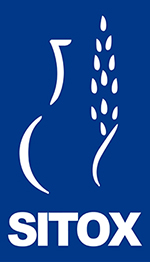Non-invasive mechanic ventilation in treating acute respiratory failure
Submitted: 17 February 2013
Accepted: 17 February 2013
Published: 18 December 2009
Accepted: 17 February 2013
Abstract Views: 1086
PDF: 2148
Publisher's note
All claims expressed in this article are solely those of the authors and do not necessarily represent those of their affiliated organizations, or those of the publisher, the editors and the reviewers. Any product that may be evaluated in this article or claim that may be made by its manufacturer is not guaranteed or endorsed by the publisher.
All claims expressed in this article are solely those of the authors and do not necessarily represent those of their affiliated organizations, or those of the publisher, the editors and the reviewers. Any product that may be evaluated in this article or claim that may be made by its manufacturer is not guaranteed or endorsed by the publisher.

 https://doi.org/10.4081/ecj.2009.6.8
https://doi.org/10.4081/ecj.2009.6.8








